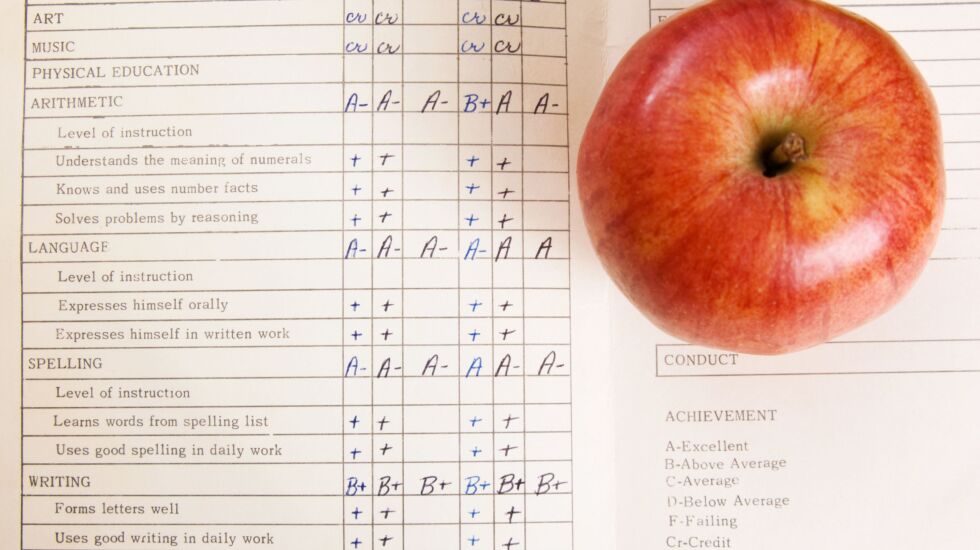
“Education runs on lies.” These are harsh words coming from a former U.S. education secretary in a 2018 book about public schooling in America.
But they’re especially true today as the country reflects on the past 40 years of education reform sparked by the seminal report, A Nation at Risk. School systems are coping with unprecedented drops in student achievement since the pandemic, which made pre-existing achievement gaps even more apparent.
To realize the vision set forth in A Nation at Risk, our nation must also acknowledge and confront the “parent awareness gap.”
In surveys conducted by Learning Heroes as a part of the GoBeyondGrades campaign, an new initiative to bring together parents and teachers on summer learning opportunities, 80% of parents report their children get mostly B’s or above and rank report card grades as the top measure to know if their child is on grade level. Given this, it’s no surprise that as recently as this March, 90% of parents, regardless of race, income or education level, report their children are performing at grade level in math and reading.
Yet consider the following: The 2022 NAEP (National Assessment of Educational Progress, also known as the Nation’s Report Card) exams showed that nationally, only a quarter of eighth-graders reached proficiency in math — and just 12% in Chicago — compared to more than a third just three years earlier.
But only 30% of teachers rate report cards as one of the important ways to gauge student achievement, indicating that most of the teachers giving those A’s and B’s have a fuller picture.
Tough talk about actual achievement
So why the disconnect?
In a word, “fear.”
Many teachers are afraid that they won’t be believed, and they fear that they will be blamed, if they tell the stark truth about how student learning is falling far short of what it ought to be. Our research shows that the majority of teachers have not been equipped to have these hard conversations with parents, and schools don’t expect them to. So, while report cards are important — reflecting attendance, participation, the child’s grade-level performance — parents are unaware that their fourth-grader is getting a B in reading based on a second-grade reading level.
The result is that many of our children are not actually on a path to pursue their college or career dreams. Many, in fact, are unqualified to serve in the military, in part due to academic underperformance.
Parents are problem-solvers, but if parents think their kids are on track, they won’t know to demand access to the myriad of COVID-19 education recovery efforts available. In fact, billions of federal recovery dollars remain unspent, and intensive tutoring programs that could help children catch up after the pandemic are under-enrolled.
The plain truth is that our education system is simultaneously waving a red flag about learning loss while telling us everything is OK — a mixed message if ever there was one. It doesn’t have to be that way.
Fixing the disconnect
We don’t raise these issues to place blame on anyone. Teachers, principals, and administrators face enormous pressures to get results — over and above the enormous pressures they faced during the pandemic to keep schools open. Parents rely on report cards above and beyond any other measure, but when they’re given additional information about their children’s performance, they will take different actions.
To address this disconnect, #GoBeyondGrades suggests parents follow these “A,B,C’s”:
A: Ask where your child is academically and team up with the teacher on how best to support your child’s learning and growth this summer.
B: Be in the know about how children learn and how they can support their children in an ongoing way.
C: Connect with summer learning opportunities.
Considering the challenge put forward by A Nation at Risk all those years ago, we once again challenge ourselves and each other to do right by our children. Parents in Chicago can find out more at gobeyondgrades.org/chi/
Our children are not where they need to be. We can fix it by telling the truth.
Arne Duncan, former U.S. secretary of education, is a managing partner at Emerson Collective and founder of the violence prevention initiative Chicago CRED.
Bibb Hubbard is founder and president of Learning Heroes, a national non-profit that supports parents as their children’s most effective education advocate.
The Sun-Times welcomes letters to the editor and op-eds. See our guidelines.
The views and opinions expressed by contributors are their own and do not necessarily reflect those of the Chicago Sun-Times or any of its affiliates.







